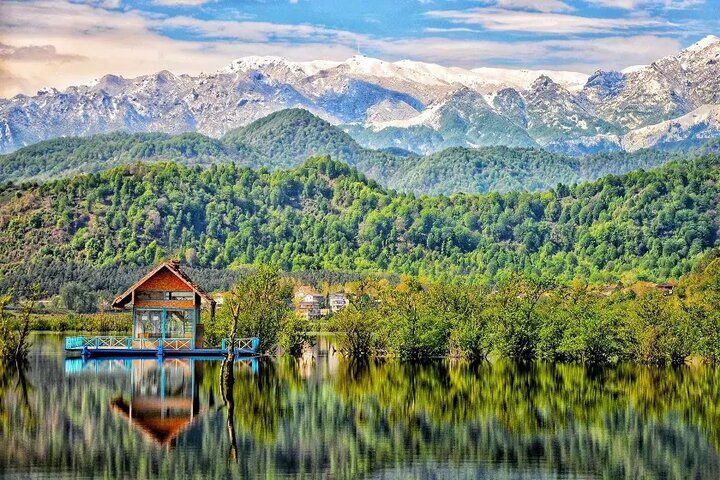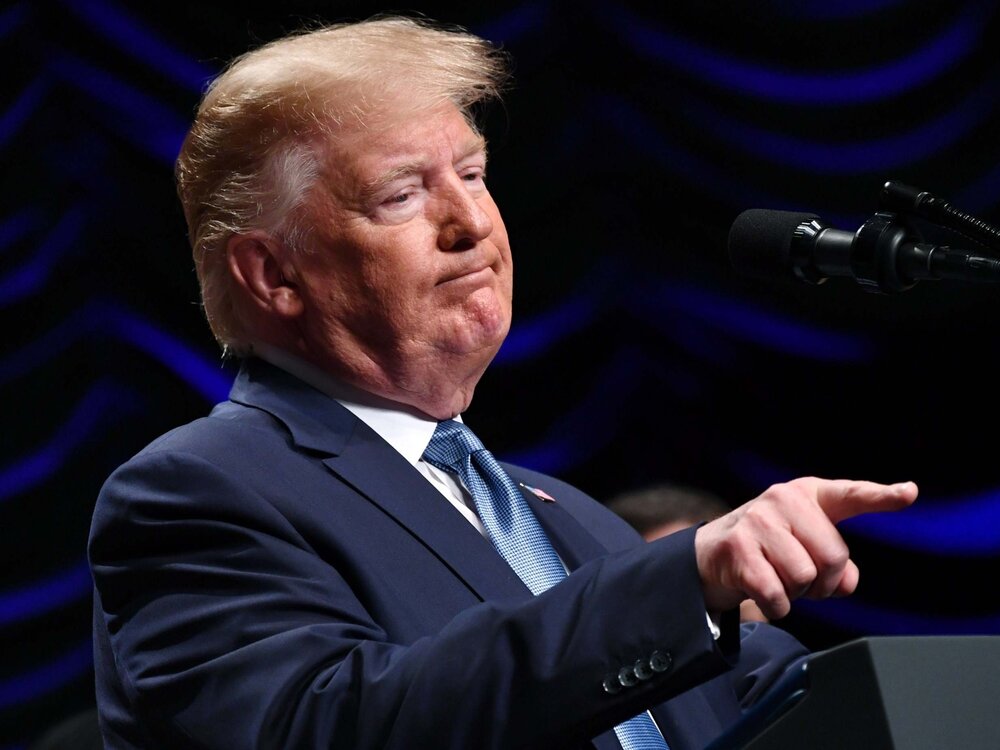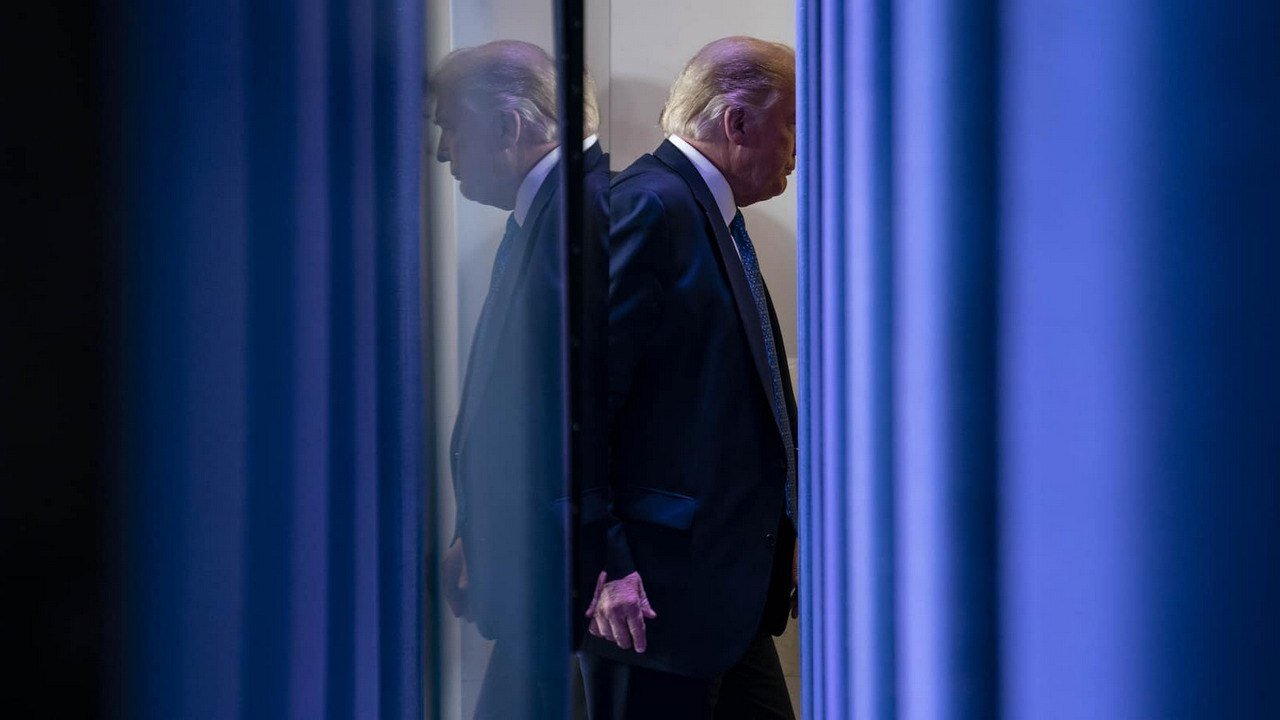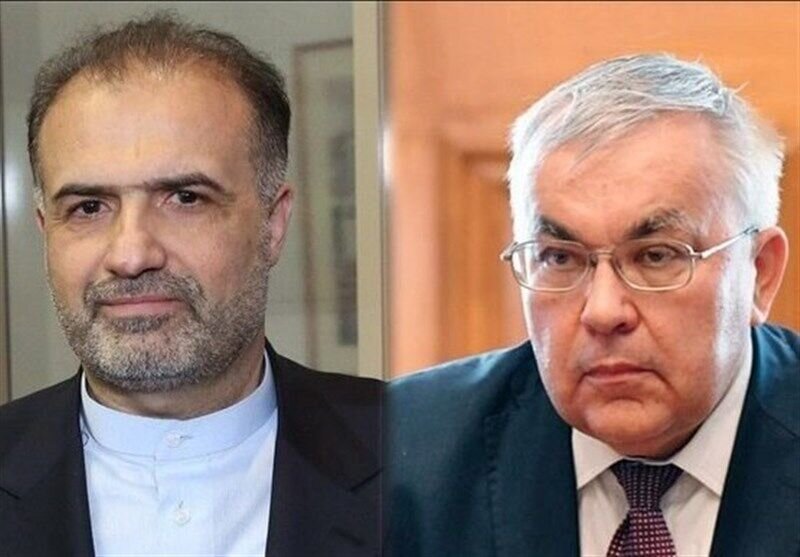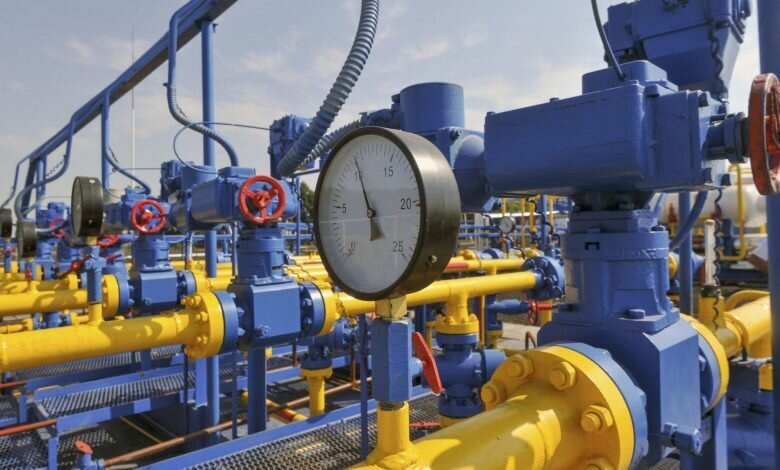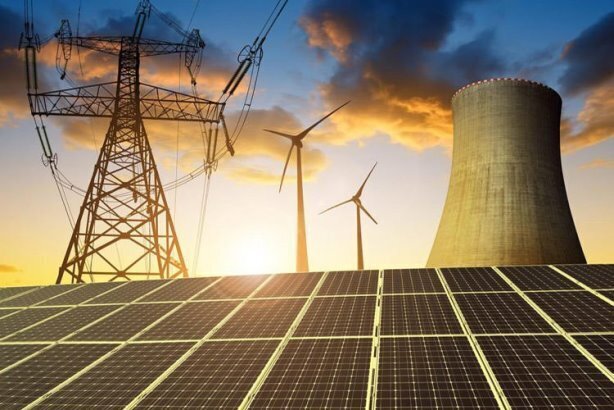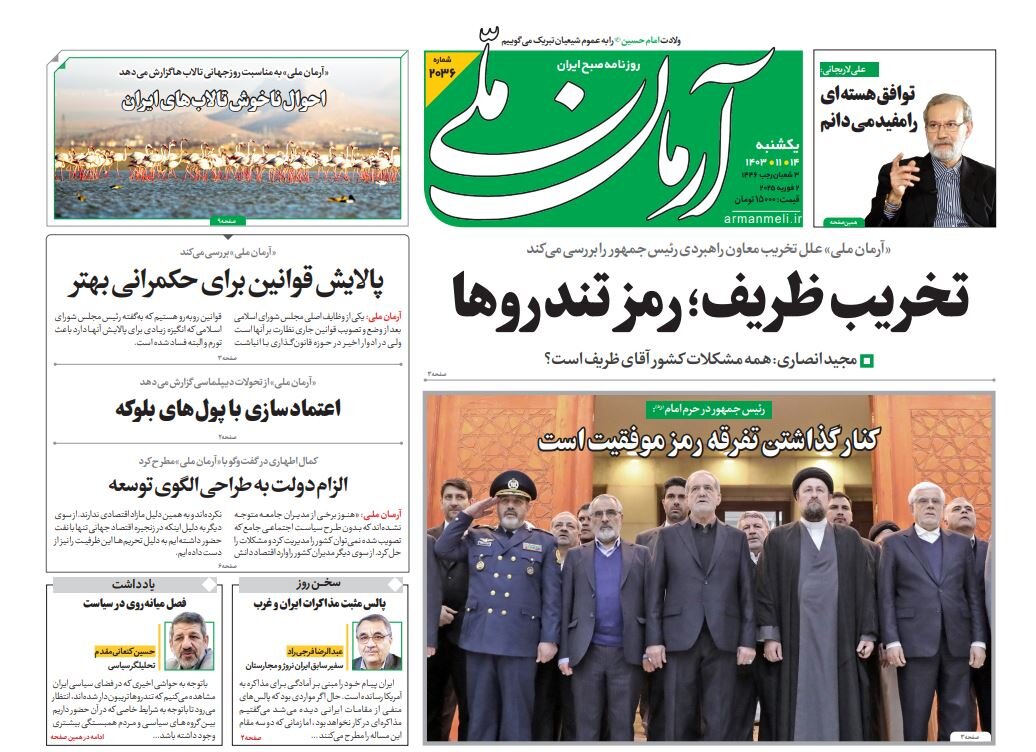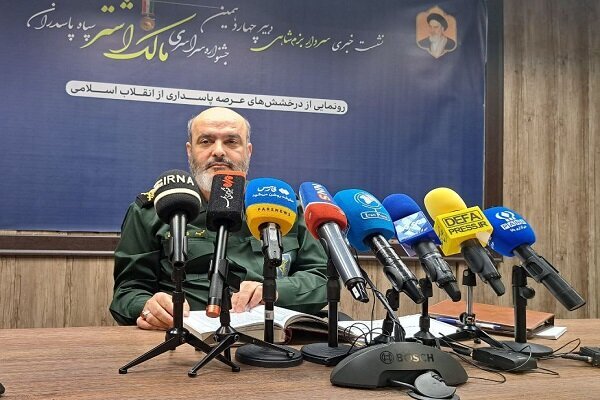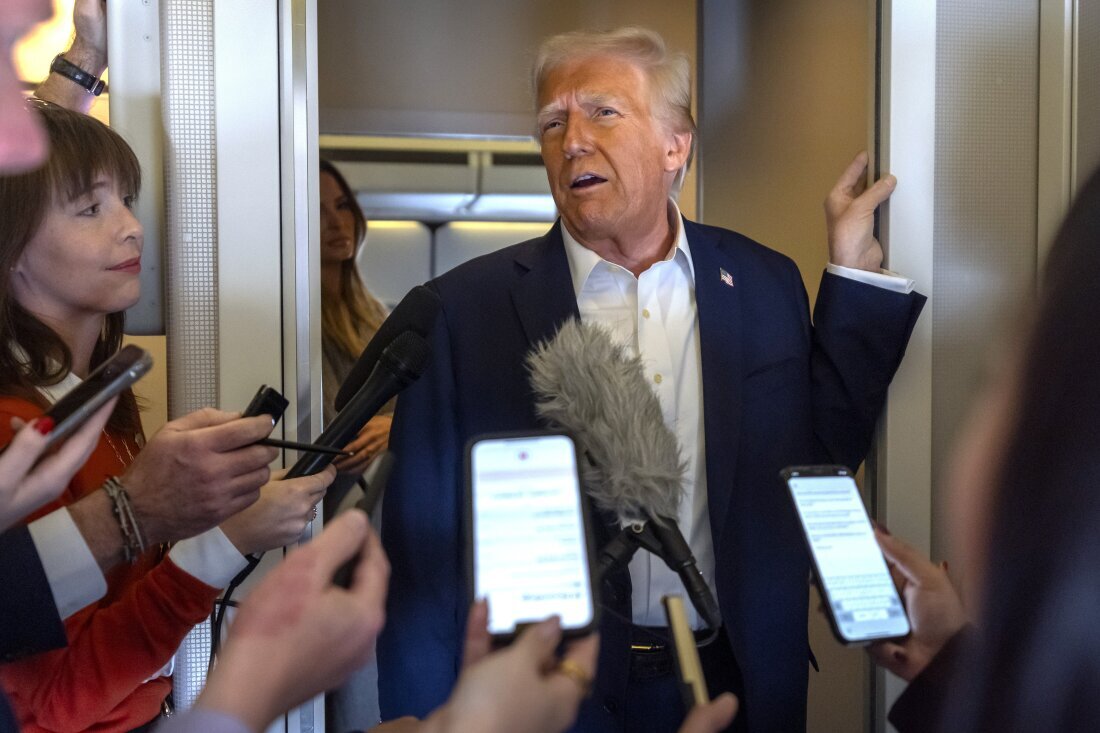
TEHRAN Since taking office in January 2025, President Donald Trump has largely refrained from making provocative or hawkish comments regarding Iran, and some of his actions have even been viewed as potential steps toward diplomacy.However, considering Trumps assembled team and his past dealings with Iran, a smooth four years for the two countries seems improbable unless the president shifts his approach in the best interests of both America and Iran.In his first term, Trump's approach to the Islamic Republic of Iran was marked by considerable tension, including withdrawal from the Iran nuclear deal, aggressive sanctions, and escalated rhetoric.
Now, in his second term, the stakes are higher, and the strategic landscape has become more complex.While some figures in Trumps cabinet appear pragmatic and realistic regarding West Asia and potential Iran policies, key members of his second administration, including Secretary of State Marco Rubio, Secretary of the Treasury Scott Bessent, and National Security Advisor Michael Waltz, have expressed firm, even hawkish, stances on Iran.
Their views, deeply rooted in long-standing political ideologies and personal experiences, converge to create a coherent but hardline policy toward Tehran.Let's now examine the individual perspectives of these influential figures, including Trump himself, and the broader context that shapes their policies.Trumps stance on Iran during 2017-2021President Donald Trumps approach to Iran has been marked by confrontational rhetoric and actions.
Early in his first term, he unilaterally withdrew the United States from the Joint Comprehensive Plan of Action (JCPOA), also known as the Iran nuclear deal, in 2018.
Trumps rationale was that the deal, which was signed by the Obama administration in 2015, was too lenient on Iran and failed to address the countrys ballistic missile program and regional destabilizing activities.In May 2018, Trump made good on his promise by pulling the United States out of the JCPOA, marking one of his most significant foreign policy moves.The withdrawal marked the beginning of a maximum pressure campaign, which aimed to isolate Iran economically and diplomatically through sanctions.In addition to sanctions, Trump labeled the Islamic Revolution Guard Corps (IRGC), Iran's elite military force, as a terrorist organizationa highly provocative move that added fuel to an already tense relationship.Fast forward to Trump's second term, and there is a noticeable shift in his rhetoric.
While the hardline approach remains the foundation of his Iran policy, the tone of his statements began to soften.
In early 2025, as Trump entered the final stretch of his presidency, he signaled a willingness to re-enter negotiations with Iran, albeit under stricter conditions.Iran has to come to the table, but this time the negotiations will be better for America and our allies, Trump declared in a speech in January 2025.
His administration expressed openness to resuming talks on the Iran nuclear issue but insisted that Iran first halt its missile development program and cease its activities in the region, particularly in Syria and Yemen.This change in tone reflects a broader strategy that aims to blend economic pressure with diplomatic outreach.
Trumps advisers have pointed to Irans deepening economic crisis, exacerbated by sanctions, as a reason for Tehrans increasing openness to dialogue.While Trumps rhetoric has softened somewhat, his emphasis on maintaining pressure remains clear.
"The sanctions will stay in place," Trump reiterated in a press briefing during his first term.
"Iran has to understand that there are consequences for their actions."Marco Rubio: Secretary of State and IranMarco Rubio, a longtime Republican senator from Florida, was nominated by Trump as Secretary of State in 2024.
Rubios hawkish stance on Iran is well-documented.
A staunch opponent of the Iran nuclear deal, Rubio has long been an advocate for policies aimed at containing Irans nuclear program and curbing its influence in West Asia.
Rubio has called for re-imposing the stringent sanctions that were lifted under the JCPOA and for holding Iran accountable for its alleged involvement in terrorism, human rights abuses, and regional conflicts.During his confirmation hearings for Secretary of State, Rubio reaffirmed his commitment to a tough policy on Iran, emphasizing that the U.S.
would not return to the nuclear deal.
He criticized the deal as a pathway to Iranian nuclear weapons and promised to work with allies to strengthen sanctions and tighten enforcement.
Rubios comments were consistent with his previous positions, which have consistently framed Iran as a major threat to both the U.S.
and global security.Rubios rhetoric also highlights his concerns about Irans growing influence in West Asia.
He has consistently opposed what he claims is Irans involvement in Syria, Yemen, and Iraq, where Iran has supported Resistance groups.
Rubio has emphasized the need for the U.S.
to work with regional allies, including Israel and Saudi Arabia, to counter Iranian influence and support opposition groups in countries like Syria."We cannot allow Iran to extend its malign influence across the Middle East.
We must stand with our allies, including Israel, and ensure Iran's destabilizing activities do not go unchecked," Rubio stated during his confirmation testimony.Rubios approach represents a continuation of Trumps aggressive posture toward Iran but adds an emphasis on regional partnerships and diplomacy aimed at isolating Tehran.
While Rubio has expressed a willingness to engage diplomatically with Iran if it meets certain conditions, he remains steadfast in his belief that the U.S.
must maintain a position of strength.Michael Waltz: National Security Advisor and IranMichael Waltz, a former Green Beret and congressman from Florida, has been appointed by Trump as National Security Advisor.
Waltzs views on Iran are shaped by his extensive military background and his experiences in West Asia.
As a military veteran, Waltz has emphasized the importance of confronting what he calls Irans regional ambitions.In various interviews, Waltz has expressed concerns about Irans ties to Resistance forces in countries like Iraq, Syria, and Lebanon.
He has described Irans activities as destabilizing and has advocated for a more forceful U.S.
response to counter these threats.During his confirmation hearings, Waltz stressed the importance of confronting Iran through a combination of military deterrence, sanctions, and diplomatic efforts.
He also made it clear that the U.S.
would not tolerate Iranian efforts to expand its nuclear program.
We need to push back against Irans destabilizing activities in the region and make sure they never get a nuclear weapon, Waltz remarked.Waltzs experience in the military and his hardline stance on Irans regional activities have made him a key proponent of maintaining a robust U.S.
military presence in West Asia.
He has expressed support for continued military operations aimed at preventing Iran from gaining a foothold in countries like Syria and Iraq.Scott Bessent: Secretary of the Treasury and IranScott Bessent, a financier with experience in hedge funds and private equity, was appointed by Trump as Secretary of the Treasury in 2024.
While Bessents background is in finance rather than foreign policy, his views on Iran align closely with the hardline positions of Trump, Rubio, and Waltz.
As Secretary of the Treasury, Bessents role will be crucial in implementing economic sanctions against Iran and ensuring that American financial institutions do not engage with entities tied to the Iranian government.Bessent has long supported the maximum pressure campaign against Iran, advocating for the use of economic sanctions as a primary tool to weaken the Islamic Republic.
He has argued that sanctions, when effectively enforced, can cripple Irans economy and force the government to abandon its nuclear program and regional alliances.Iran is a major threat, and the best way to deal with it is to make the regime broke again, Bessent said in a 2024 interview.
His emphasis on economic pressure reflects a belief in the power of sanctions to bring about change in Tehrans behavior without resorting to military intervention.
Bessent has been a vocal critic of the Obama-era sanctions relief that accompanied the Iran nuclear deal, and he supports the re-imposition of sanctions on key sectors of Irans economy, including oil and gas.As Treasury Secretary, Bessent will likely play a pivotal role in shaping the US strategy toward Iran, using economic leverage to put pressure on Tehran and its allies.The views expressed by Donald Trump and his key cabinet members demonstrate a unified, hardline stance on Iran, which remains a cornerstone of U.S.
foreign policy.
Each of these figures shares a belief that Iran poses a significant threat to both regional and global security, and they advocate for a continuation, if not intensification, of the "maximum pressure" strategy initiated during Trumps first term.This approach presents a challenging landscape for diplomatic engagement with Iran.
While these policies may strengthen U.S.
leverage in certain areas, they also carry significant risks, including the potential for escalating tensions or a wider regional conflict.
Ultimately, the future of U.S.-Iran relations under this administration will depend on how effectively the U.S.
manages these aggressive tactics and whether diplomatic solutions can be explored amidst the mounting pressure.What happens is on TrumpWhile President Trump has yet to finalize his policies toward Iran for his second term, most analysts anticipate he will likely maintain or even intensify the "maximum pressure" campaign he initiated during his first presidency; a strategy continued by President Biden from 2021 to 2025.
However, these analysts also caution that continuing this approach would be among the worst decisions he could make.As Iranian Foreign Minister Abbas Araghchi recently stated, "Maximum pressure only resulted in maximum defeat." Renewing such a campaign would likely precipitate another cycle of failure.While the "maximum pressure" strategy has severely impacted Irans economy, its effects have been contrary to Trumps intended goals.
Trump argued that the JCPOA failed to curb Iran's nuclear program.
Now, with the agreement in disarray, Iran has made the most significant advancements in its nuclear industry in decades.
Further pressure, while undoubtedly harming Iran, would likely only push the country to further nuclear ambitions.
Once economic pressure loses its efficacy and the United States is compelled to threaten military action, Tehran might well redefine its nuclear doctrine and eventually pursue nuclear weapons development.Given all of this, Trump must choose: a path towards endless catastrophe, or a path towards relative calm.

 19
19







